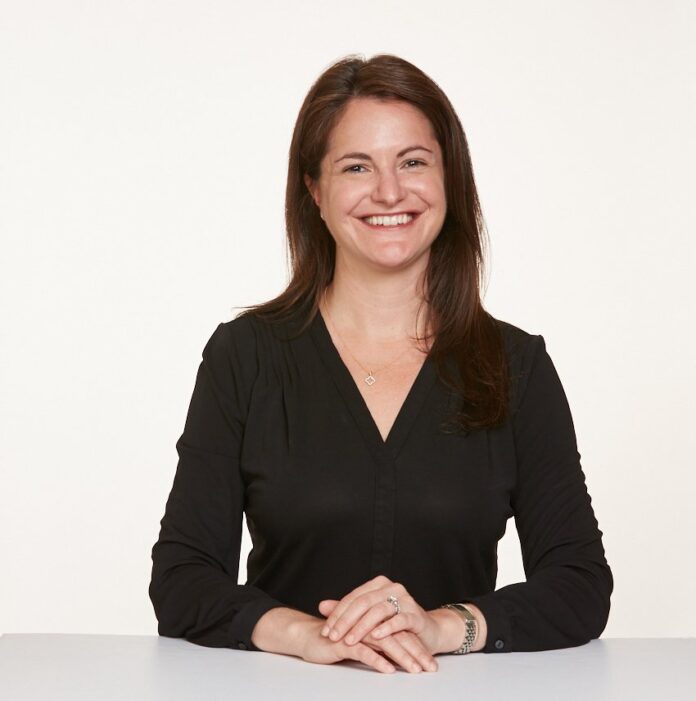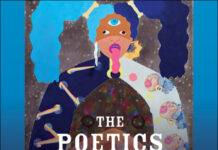Longtime Food & Wine editor and Speaking Broadly podcaster and zine creator Dana Cowin.
Dana Cowin, editor in chief of Food & Wine for over two decades, left the print-magazine world in 2016. But she didn’t stay away for too long. Cowin recently launched her own zine, Speaking Broadly, based on her popular podcast. In both formats, Cowin highlights visionary women in the culinary industry, often exploring the intersection of creativity, sustainability, and food.
Cowin will be in Washington on Tuesday, September 20 for a Les Dames d‘Escoffier “Wine & Stories” event at the Four Seasons Hotel, where I’ll interview her. Tickets are $75 for Les Dames members and $85 non-members, and include a complimentary issue of Speaking Broadly, plus a wine tasting and canapes. The event runs from 6 to 8 PM.
But first, I caught up with Cowin to chat about her why her new project feels like returning to an ex-boyfriend, plus dining trends, vegan food, and what it means to be a celebrity chef in 2022.
You launched the Speaking Broadly podcast in 2017, and so much has changed in the restaurant industry since, from the #MeToo movement to the pandemic. How has that impacted what kind of stories you want to tell?
“One of the reasons I started the podcast in 2017 was because I wanted to tell stories that I felt weren’t being heard. So things like #MeToo were very much along the lines of sharing stories that we needed to hear—obviously women’s stories, and stories from people of color, and as much diversity as humanly as possible. The world has changed, but an editor’s job is always to talk about what is important and interesting in the moment, which intersects with things that are ahead of the audience. I felt that some of those things I had not done at Food & Wine because of our audience, and I was excited to tackle them in the podcast and the zine.”
Yes, tell me about the new zine and how it came about.
“When I left Food & Wine, I was like ‘I hate print. It’s boring, it’s stodgy, you have to think about these darn advertisers all the time.’ I’d been doing it for so long and it felt so formulaic. But when thinking about all the stories that were on the podcast, I was like, these stories are amazing. I want to curate them, make sure that people see them, and make sure they can have them for a long time. And then it was like, oh my God, I am going to do something in print! It’s like going back to that old boyfriend and thinking ‘Aw, he was kind of nice, just not that version.’ The original idea was to do something that’s fast and cheap that feels a little urgent and edgy and independent, and something that was the opposite of everything that I’d ever done. Food & Wine is timeless and is all about big names because it has a huge audience, and I really value a small audience that’s exactly my community. Women mostly. And that’s how I started doing the zine.”
What are some of the most pressing issues facing women in the culinary industry today?
“Most of the pressing questions are pretty universal because they are about inclusivity and treating people—everyone, not just women—right. I mean, women have a particular burden to bear in the kitchen because of the toxicity of the culture. But it’s incumbent upon everyone to make everyone in the kitchen feel comfortable. There are gay men or trans people who feel the burden of that. And so I think the reckoning for the industry is: How do we become an industry that people want to be a part of? How do we make this industry better? I found an organization that helps with financial planning, because that’s really important. These are the things—pay equity, government assistance—all those things are powerful.”
You had a great amount of influence as a tastemaker over your two decades at Food & Wine. You’ve been credited with shaping the idea of the modern celebrity chef. How do you think the role of celebrity chef has changed?
“With everything, there are phases. And though the modern celebrity chef still exists, I don’t think that was something for the long haul. The idea at the time was to wake people up to the possibility of food. And people have done that. The things that are of interest to me now fall much less into the celebrity bucket, and more into what are we doing to change culture. What are we doing to understand each other better? And to me, ‘the celebrities’ (and I sort of reject the term), but the people I want to follow, are the ones who are nurturing community. I know it sounds saccharine. But they’re making you feel welcome, they’re telling you the story. Maybe they’re cooking amazing food you’ve never tried before. And there’s an intersection of those people, like [former Kith and Kin chef] Kwame Onwuachi. He’s really a celebrity. He’s got the fashion to prove it, but what he’s cooking and what he’s talking about has a lot of gravity.”
The same goes with dining trends—things change all the time. What trends are you seeing for 2022 in the dining world?
“It’s funny. At Food & Wine, one of the skinniest and most popular issues of the year was the January trends issue. And we were really good at it. I don’t really care a whole lot [about trends] at this point. But what I do care about is that there’s a lot of interest in West African cuisine. There’s a lot of interest in Taiwanese—which isn’t brand new, but whenever I see a new place open, I’m like, I need to eat there. There’s an interest in nostalgia. (I’m always happy for nostalgia). I’m interested in the cult of the unexplored. People like Kiki Aranita with Poi Dogs. She’s creating ingredients and doing pop ups all over the place that are Hawaiian through her lens, which I think is fascinating. I would love for someone to take on invasive species. In the world of food, we’ve determined what is edible and what’s not good. And we’ve landed on a very narrow range of foods. I’d love to see that expanded to help the planet. I’m interested in vegan-Southern, vegan-Korean, vegan through all these lenses.”
You’ve been described as “a catalyst for optimism,” and are known as a force of positivity food world. How do you do it, especially now?
“I just wake up with the assumption that I can make it work. I believe that’s the foundation of cooking. Actually, I apply that to everybody. I don’t know what you want to do, but I believe you can do it. If it seems too hard or impossible, then it’s just not your thing to do. Just don’t do it! There is something, the right thing, that will be easy for you—and that will still feel good while you’re doing the hard things.”









